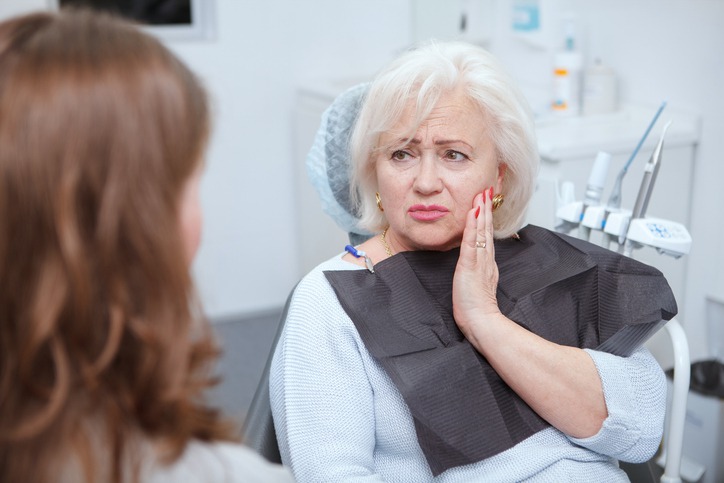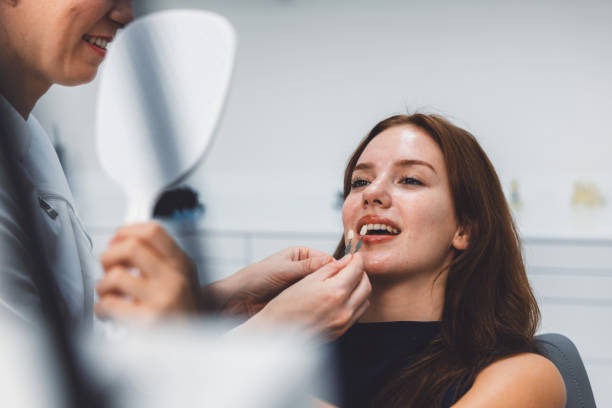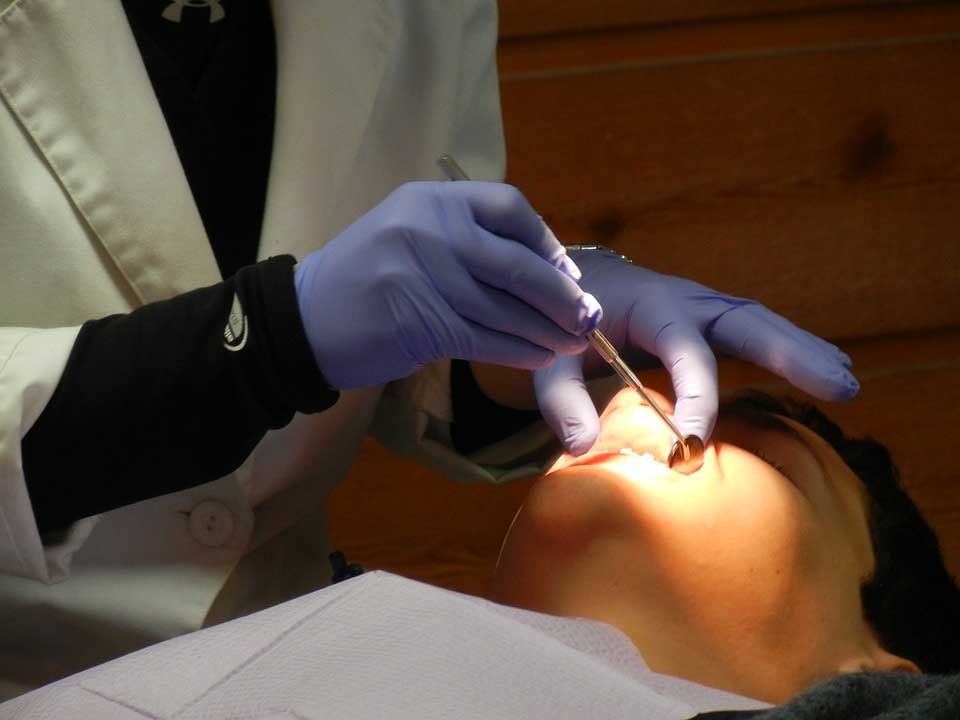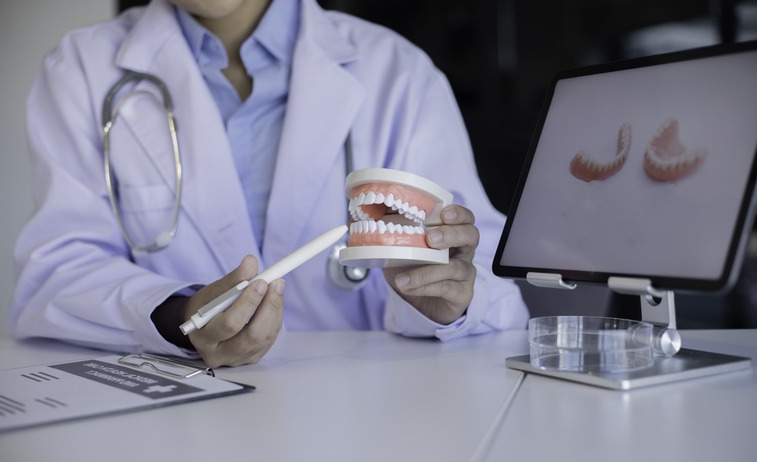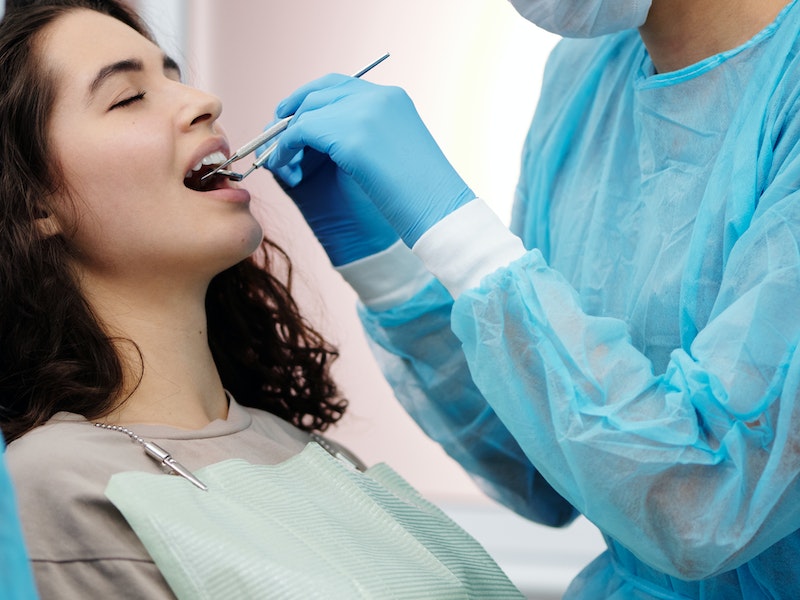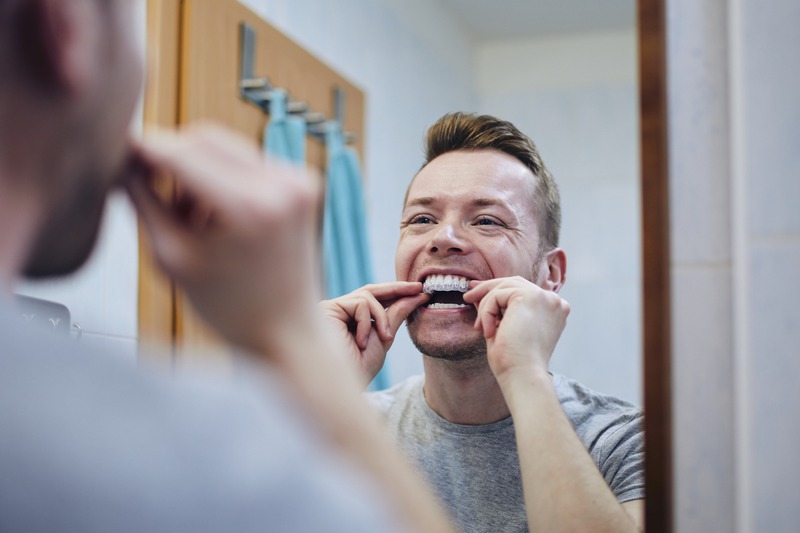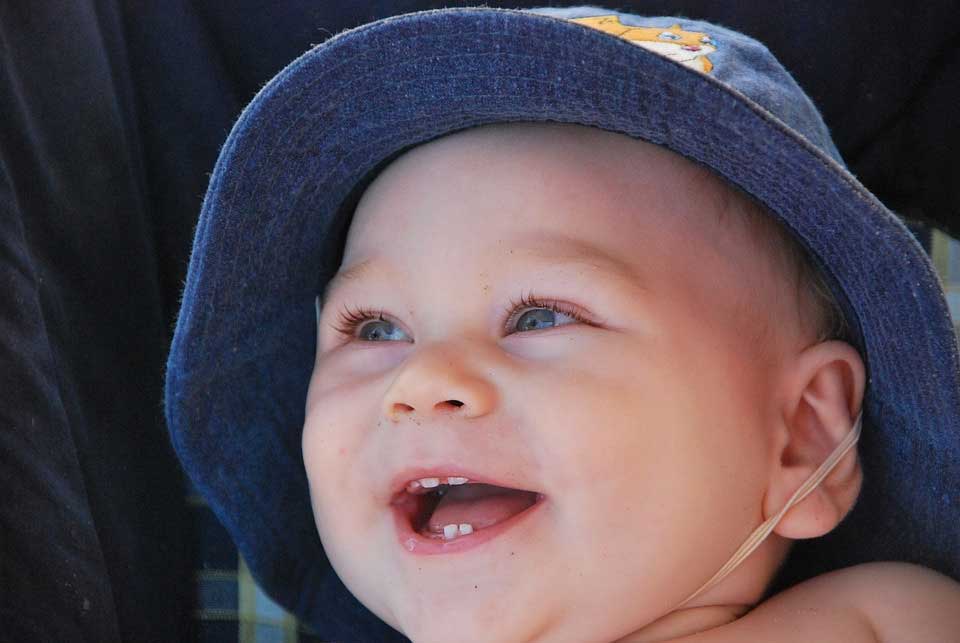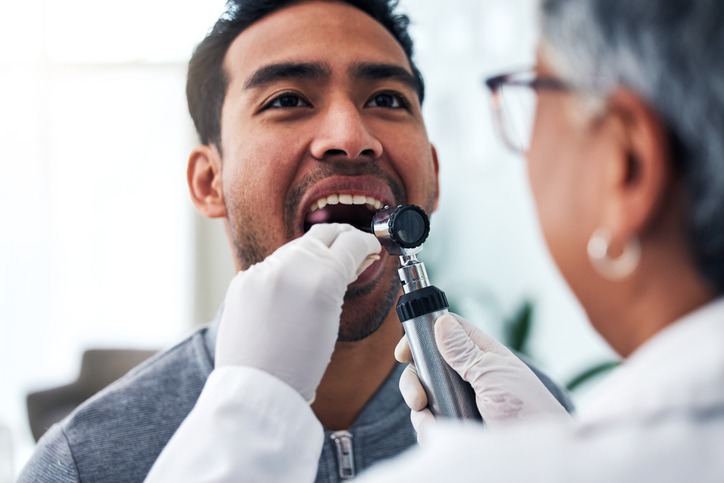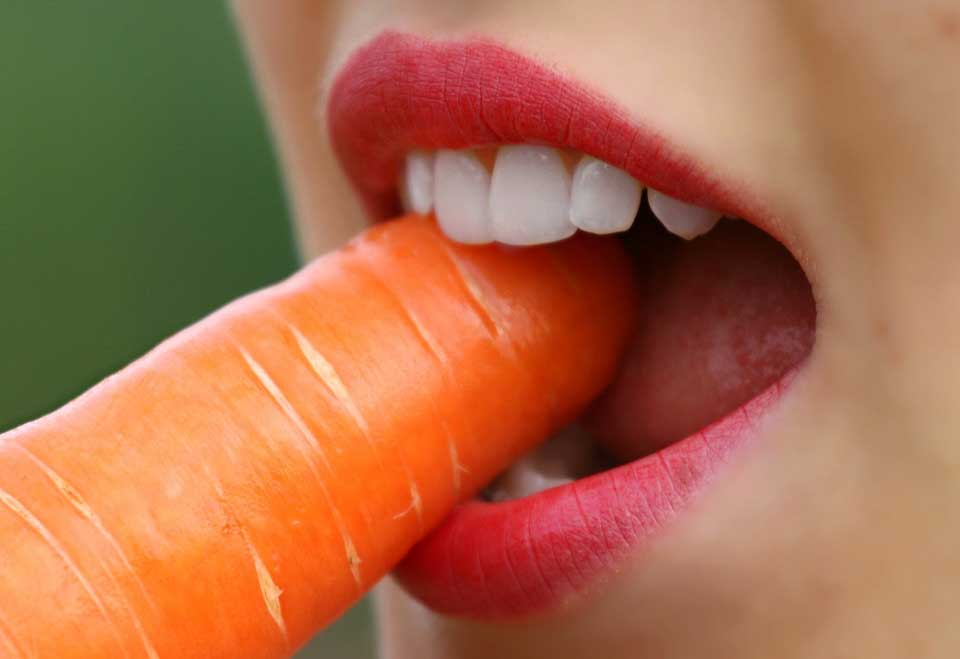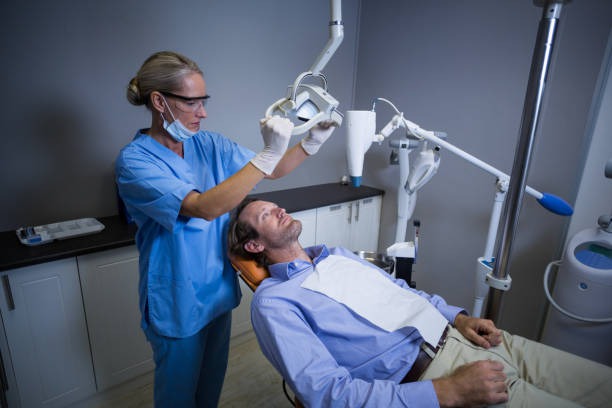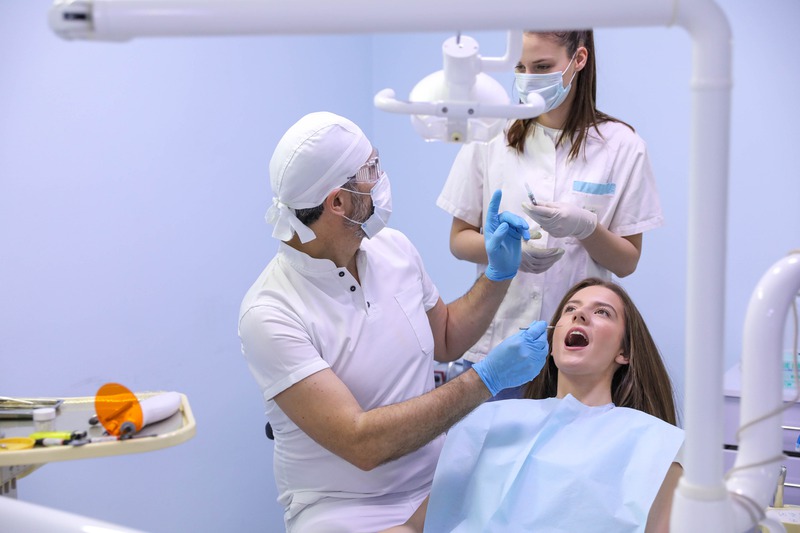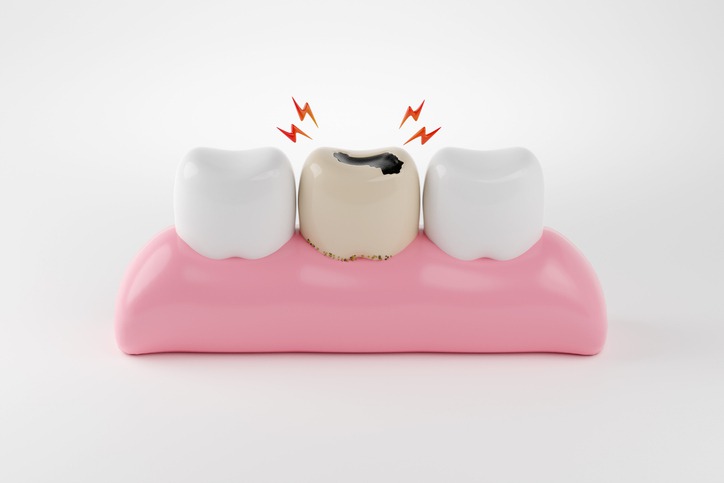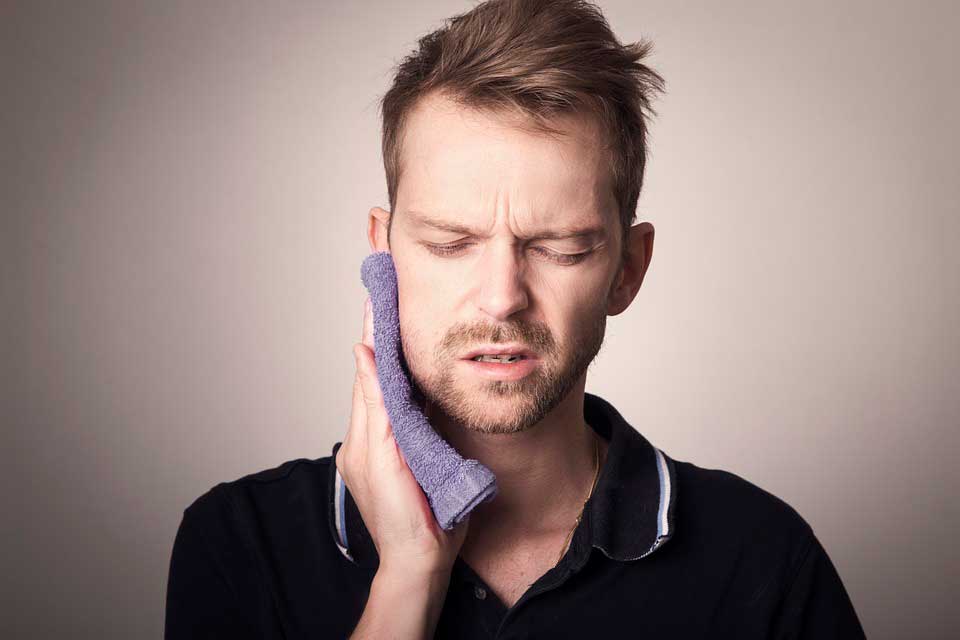
Reasons Why Your Jaw Pops and Clicks While You Chew
Do you ever notice your jaw pops and clicks while you chew food? Jaw popping and clicking is a relatively common occurrence due to many reasons. Some causes are minor and do not require treatment, while others may need to be addressed by a dental or medical professional.
What Is Jaw Popping and Clicking?
Jaw popping and clicking is a condition wherein your jaw makes a popping and clicking sound when chewing, opening your mouth wide, and yawning. In general, this is not a concern, but if it’s accompanied by a painful sensation, swelling, or locking of your jaw, you should see your dentist or doctor right away.
Why Does My Jaw Pop When I Chew?
There are many reasons why your jaw pops and clicks while you chew. These include:
Temporomandibular Joint Disorder (TMJD)
Temporomandibular disorders are a group of over 30 conditions that cause jaw popping and clicking. These painful conditions affect the jaw muscles, nerves, and temporomandibular joints— two jaw joints connecting your lower jaw to your skull. Temporomandibular joints or TMJ are located on each side of your head, in front of your ears. They are responsible for moving your jaw up and down and side to side, so you can talk, chew, and yawn.

TMJ disorders are classified into three, such as:
- Joint disorders
- Headaches associated with a TMD
- Masticatory muscle (muscles used in chewing) disorders
When you have a temporomandibular disorder, the muscles that open and close your mouth may spasm or tighten. This can cause your jaw to pop or click when you chew.
Other symptoms of TMJ disorders are:
- Headaches
- Neck and shoulder pain
- Earache
- Facial pain
- Tooth grinding (bruxism)
- A change in the alignment of your upper and lower teeth
Arthritis
Arthritis is a condition that causes inflammation in your joints. It can occur in any joint in your body, including your temporomandibular joints, leading to cartilage damage. If this occurs, your jaw movement can become difficult, causing popping sounds and a clicking sensation in the joint.
Two types of arthritis that can affect your jaw include:
- Osteoarthritis. It is the most common type of arthritis, caused by the wear and tear of cartilage, the tissue that cushions your joints.
- Rheumatoid arthritis. Rheumatoid arthritis is an autoimmune disease resulting in inflammation in the lining of your joints (synovium).
Symptoms can be:
- Joint pain and stiffness
- Swelling in the joints
- Warmth around the joints
- Redness around the joints
- Locking of the joint
Broken or Dislocated Jaw
This occurs when your lower jawbone is out of alignment with your upper jawbone. It can happen if you have an accident, physical assault, or open your mouth too wide. Dislocated or broken jaw is an emergency that requires immediate medical attention.
Symptoms include:
- Jaw pain
- Difficulty chewing
- Inability to close your mouth
- Teeth that do not line up correctly
- Jaw injuries
Obstructive Sleep Apnea
This is a condition that causes you to stop breathing for short periods of time while you sleep. It can arise from a blockage in your airway or when your brain doesn’t send the proper signals to your muscles to breathe.
If you have sleep apnea, your jaw may pop or click when you yawn during the day. This is because your jaw is trying to open wider to take in more oxygen.
Symptoms of sleep apnea include:
- Loud snoring
- Waking up gasping for air
- Excessive daytime fatigue
- Irritability
- Migraines
Teeth Malocclusions (Bad Bites)
Malocclusions occur when your teeth do not line up correctly, which puts stress on your temporomandibular joints. There are a number of different teeth malocclusions that can cause your jaw to pop or click.
Some common types of malocclusions include:
- Overbite. It is a condition when your upper front teeth overlap your lower teeth too much.
- Underbite. This is when your lower teeth protrude past your upper teeth.
- Crossbite. Crossbite occurs when your upper and lower jaws don’t line up properly, making some of your upper teeth bite your lower teeth’s inside.
- Open bite. This is when there is a space between your biting surfaces when you close your mouth.
Infection
An infection in your jawbone, gums, or teeth can cause your jaw to pop or click. This condition can cause the tissue around your joints to swell, putting pressure on the joints and muscles.
Symptoms of an infection include:
- Pain in the jaw
- Toothache
- Fever
- Swelling in your face or jaw
- Redness
- Tenderness
- Inflammation
- Abscesses
- Cysts
Tumors
This is a mass of abnormal cells growing out of control. Jaw tumors are rare but can cause your temporomandibular joints to become inflamed and swollen. This can lead to a clicking and popping sound when you make a jaw movement.
Symptoms of a jaw tumor are:
- Jaw pain
- Toothache
- Difficulty chewing
- Swelling in your face or jaw
- Redness
- Tenderness
- Inflammation
- Facial asymmetry (when one side of your face looks different from the other)
Myofascial Pain Syndromes
This chronic pain disorder affects the muscles and connective tissue in your jaw. It can be aggravated by using the affected muscles and responding to mechanical stressors, such as anxiety, pressure, cold, and heat. Your jaw pops or clicks when the muscles in your jaw tighten and pressure the joints.
Symptoms of myofascial pain syndrome may be:
- Throbbing pain
- Muscle tenderness
- Headaches
- Difficulty chewing
- Dizziness
- Facial swelling
Should I Worry if My Jaw Pops?
If your jaw pops or clicks, but you’re not in pain, you probably don’t need to worry. This is often due to TMJ, that’s not harmful. However, if you’re experiencing jaw pain, swelling, or difficulty opening or closing your mouth, you should see a doctor.
How Is Jaw Popping Treated?
There are a few treatment options for jaw popping and clicking, depending on the underlying cause. For instance, if your TMJ is the cause, your doctor may recommend:
- Resting your jaw
- Eating soft foods
- Avoiding chewing gum
- Applying hot or ice packs to your face
- Taking over-the-counter (OTC) medications, such as ibuprofen (Advil, Motrin IB) or naproxen (Aleve) to relieve pain
- Using a mouth guard or splint to keep your teeth from clenching
- Relaxing your jaw by
- Practicing stress management
- Laser therapy
In some instances, your doctor will recommend surgery to repair or replace your temporomandibular joint. This is typically only done if other treatments have failed and you’re still experiencing pain.
Similarly, if you have an infection, your doctor may prescribe antibiotics to address the problem. Surgery may also be necessary to drain an abscess.
Final Thoughts
Jaw popping and clicking may not be serious and can be treated with simple home remedies. However, if you experience it with accompanying pain, swelling, or fever, see your doctor immediately because this could indicate an infection or other serious condition that requires medical attention.


